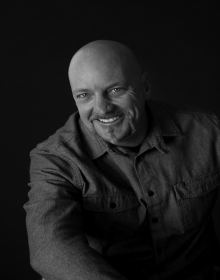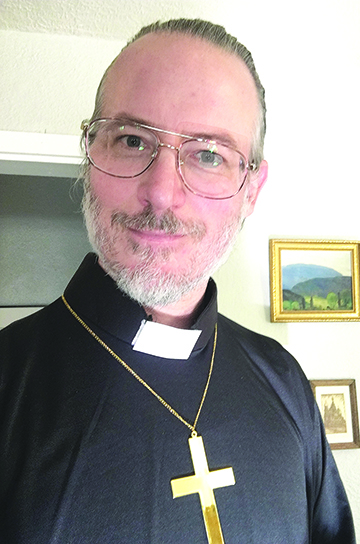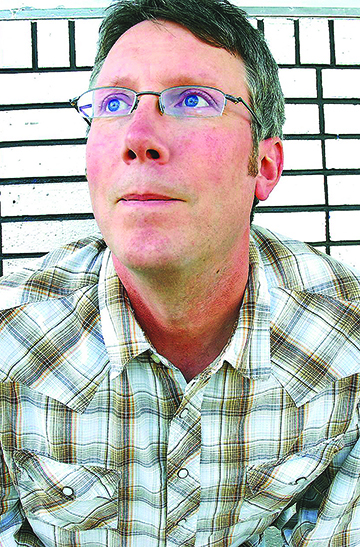“Against the assault of laughter, nothing can stand.” – Mark Twain
by Luke Schmaltz
Perhaps the lowest blow Covid-19 has thrust into the guts of live entertainment is the crippling assault on the art form that thrives within kissing distance of society’s face.
Live comedy shows are casualties of circumstance, as there is too great a price to pay when large crowds of people gather in compact spaces and let loose with the explicit purpose of opening up and laughing out loud.
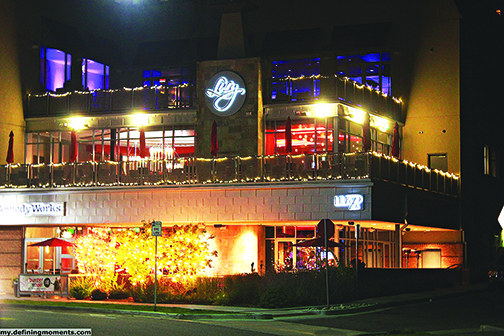
The essence of effective live comedy is the proximity of the artist to the audience. It’s an intimate affair, wherein spectators willingly subject themselves to carefully crafted webs of cunning that twist their wits into coils of suspense and then snap the tension with an unexpected conclusion. The result: uncontrollable laughter.
Social distancing and the complete shutdown of indoor venues has put a detrimental damper on this dynamic, placing comedy venues, promoters, managers, booking agents and the essential engine upon which the industry runs — the comedians — in peril. Currently, the world that hawks hilarity is stagnating, yet the resilient nature of the art form pushes on like a river smothered by a landslide — looking for other ways to reach its destination. And, while some do not deem laughter as an “essential” industry, those who create it think otherwise, and are reacting to 2020 in various ways.
An Unfortunate Setup
Comedy Works is widely regarded as one of the finest institutions in the live comedy business, but their business is currently paralyzed. Longtime owner/operator Wende Curtis explains: “Our downtown club closed on March 15 and has never been able to re-open. We were unable to get 50% or even 100 people in to maintain the social distancing requirements. Our south location reopened in late July but was closed again with the recent mandates.”
With no options for operating in an outdoor space, they are looking to the powers that be for assistance. “We are hoping government officials see the impact on live entertainment venues, restaurants and all businesses impacted and will appropriately accommodate us in the stimulus package,” Curtis explains.
Curtis, a universally respected comedy promoting legend, is critical of the government’s role thus far: “These venues and businesses should not have to bear the burden of this pandemic. The government should have stepped up and helped these businesses sooner. The Paycheck Protection Program (PPP) was meant to suffice for eight weeks. It’s been nine months. Without small businesses, we [live comedy] will be a couple of ugly big box companies. A truly sad state.”
Promise Of The Real
Despite the detriments of 2020, comic Christie Buchele is still hopeful — hanging onto the idea that venues, and more importantly comedy fans, will hang on too. The relative newcomer to the jokester trade has quickly blazed a trail to the forefront of the new faces set, earning a reputation for being hardworking and fiercely funny. Staying busy during 2020 hasn’t been easy, she describes performing live after the shutdown: “My first show was a zoom show for a producer in Austin, the first week of April. I didn’t do a live show until Mid-May. We did the show in the parking lot of a brewery with tables spread out and comics all wearing masks when they were off stage. The crowd size was maybe a little smaller than average but it’s hard to tell with everyone spread out.”
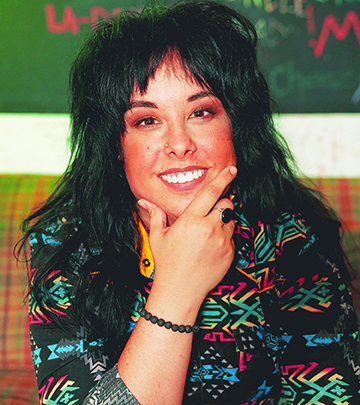
The experience of performing under these conditions makes Buchele pine for the good old days of clubs full of patrons packed in sardine-tight. “Before COVID-19 an outdoor show felt like a real pain in the ass. Keeping attention was tough, keeping up your energy and dealing with any distractions was terrible. I do think that audience members are just so happy to have something to do that now when they go to an outdoor show, they are much more attentive and excited. And they realize we are rusty but just so excited to do comedy again.”
Buchele urges comedy fans to stay tuned and support independent venues by subscribing to streaming content and buying tickets for future shows. Of all these, she laments the temporary loss of Denver’s finest room the most: “Of all the venues in Denver, I miss Comedy Works Downtown. It’s the best place in the world to do comedy and I hate not being able to go down there every week and see everyone and have the best time onstage. I never thought I would go this long without stepping foot in that building. I imagine I will cry happy tears the first time I get back up there.”
The Show Must Go On
Ben Kronberg is a Denver comedy stalwart, having begun his performance tenure in the early 2000s with no end in sight. His straight-out-of-left-field-blink-and-you’ll-miss-it style is inimitable and unmistakable. Kronberg’s comedy blurs the line between traditional set-up / punchline joke telling and abstract mentalist conjecture, which seems to have seeped into his perception of linear events in general. When asked to compare his comedic experience post and prior to the shutdown, he says: “I have what you could call a memory blend with shows now. After doing comedy for over 15 years, all the shows seem to blend together and fade together. I have been running shows at The Denver Comedy Lounge for about a year so it [last indoor show] was one of those to be uncertain.”
Once social distancing regulations were in place, Kronberg adapted and kept forging forth. “We kept doing shows however we could, moving to the alley behind the lounge and trying to comply with all of the regulations. When you go to a strip club you want to be close to the performer, and comedy is no different so it gave a cold medicine vibe to the whole thing with the laughter vaporizing because of being outside. We could fit maybe 30-ish people in this situation. People who came out were receptive, but this muted version of a comedy show could be felt by all. But it was better than nothing.”
Kronberg sees virtual shows as a band-aid over an axe wound type of remedy but participates nonetheless — if only for something to do. “The most fun I had [virtually] was probably doing a zoom talent show. Most [attendees] were performers and a few pervy, lonely audience members. It was better than nothing but not a proper substitute for the real thing. Kind of like a homemade fleshlight.”
Give ’Em Hell
Of all the unsung heroes in the Denver comedy scene, Troy Baxley is at the top of the list, having begun performing in the 1980s and since played just about every comedy stage in North America. He ran one of the first open mics in Denver at the Lions Lair on East Colfax and, of late, has taken to mentoring an onslaught of young comics determined to get on the fast track to funny.
Baxley sees the current shutdown as a great equalizer, serving to weed out what he calls “water cooler comics” while testing the endurance and mettle of those who are truly in it for the long haul. “The thing is,” he begins, “most are crumbling under the weight because there’s no end in sight. If you’re a hacky comic, the allure of doing the same two-minute set falls away, and since you aren’t disciplined to be constantly developing new material your skills get rusty fast. With open mic nights gone [for now] you can’t just go tell a couple zingers one night and then go to work the next day announcing yourself as a comedian.”
Unfortunately, Baxley was recently diagnosed with onset Parkinson’s disease, perhaps hindering his ability to perform once clubs are open again. Yet, Baxley shrugs off the shutdown like he’s shutting down a heckler. “I can tell by a heckler’s tone how long they have before I get the room to turn on them. I can tell by Covid-19 that, eventually, things will bounce back and once we all work the rust off, we’ll be cracking wise better than ever.”
Anyone interested in donating to Troy Baxley’s Parkinson’s crowdfunding campaign can visit www.gofundme.com/f/troy-baxley-parkinson039s-fund.

